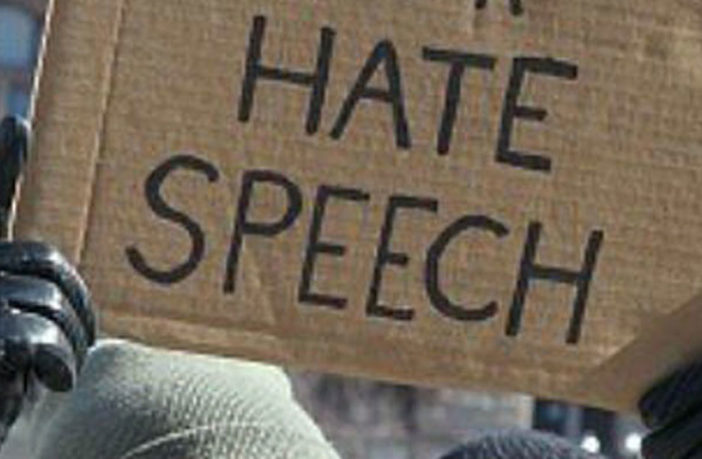Dr Ayotunde Ayodele, an Associate Professor, Department of English, Lagos State University (LASU), Ojo, has urged the Federal Government to embark on more sensitisation programmes to stem the rising cases of hate speech in Nigeria.
Ayodele spoke as the Guest Speaker at a lecture of the Faculty of Arts in the university on Thursday in Lagos. The lecture was entitled: “Beyond Linguistic Injuries: Understanding the Discourses of Hate in Nigeria.”
He also urged the government to be proactive by making every part of Nigeria to feel its presence so as to minimise some of those factors that triggered hate speeches.
“Beyond any legal framework, we need restructuring that will make accessibility of resources possible for different ethnic groups in Nigeria.
“Setting up a law to deal with the culprits does not imply the cause of the crime, government should try to remove the cause, rather than treating the consequences,” Ayodele said.
He said that people need to recognize hate speech, what they can do about it and create awareness that it was not every instant of expression that appears as hate speech.
“There are certain indices that must be present for you to say that the expression is hate speech, including: hate speech must target an individual or their goal that is different from yours.
“It must also give a kind of condition that shows degrading or demoralizing an individual because the person do not belong to their ethnic group, religious and sexual orientation.
“In Nigeria, hate speech is largely associated with political activities; there was an upsurge during the peak period of political campaigns.
“However, the incidence of hate speech is more associated with the social media than the regular media, because it is uncontrolled and unregulated.
“Anybody can go to social media and say anything and still get away with it; until we control, check and influence what goes on social media the incidence of hate speech will continue,” Ayodele said.
He said that the outburst and outcries of Nigerians against the Hate Speech Bill underscored the ignorance of what it actually stands for.
“Nigerians feel that if someone say anything that you do not like means hate speech, but that is not what it means; you can criticise the government or someone without hating.
“We discovered that people do not understand the meaning of hate speech; we should know that in many other countries, they are laws to address hate speech,” Ayodele said.
He advised the higher institutions to include media literacy into their school curriculums so that their students could learn how to tolerate others when it comes to social space.
In his opening remarks, Prof. Harrison Adeniyi, Dean, Faculty of Arts, LASU, said that government should mobilise socially by informing the citizens on the dangers of hate speech, which could result to genocide.
Adeniyi said that hate speech could result to genocide as it happened in Rwanda many years ago, meaning that people need to be sensitised.
“People have to trend softly on hate speech so that it does not infringe on other groups intellectually, morally and psychologically,
because it can destabilise and cause confusion in the country,” he said.
Contributing, Dr Henry Hunjo, Sub-Dean, Faculty of Arts, LASU, said people should know that hate speech does not promote human development and good existence, and we should, therefore, avoid it totally.
Hunjo, who is also a Senior Lecturer, Department of English, said that political correctness would help us to understand that we should always say what whould make people happy and understand their social cultural knowledge.
“In order to address hate speech, we need to identify the context in which the particular utterance was made, identify the objects of such speech and watch for the message such speech is sending to a particular audience,” he said.




